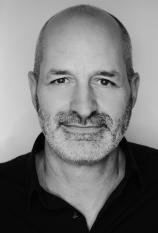Interview: November 25, 2024
Acclaimed Irish writer Austin Duffy makes his US debut with CROSS, a masterful tale of betrayal and violence in a tight-knit community in Northern Ireland during the last days of The Troubles. In this interview conducted by Michael Barson, Senior Publicity Executive at Melville House, Duffy talks about his inspiration for writing the book, why he thinks it could work as a film or television series, the two Irish authors whose novels he admires the most, and his upcoming projects.
Question: Had you wanted to write CROSS for a long period of time, or did the subject and approach come to you in a flash one day? How long did this final version take to write?
Austin Duffy: The book was 10 years in gestation and started from the first line. I had wanted to write a story similar to Denis Johnson's TREE OF SMOKE and set it in The Troubles. This then changed to wanting to write a book like ALL IS SILENCE by Manuel Rivas with a focus of setting it on the border, near where I grew up, and an area not represented a huge amount in fiction. The narration changed over time, acquiring that feverish quality that I hope distinguishes it a little.
Q: There is a formidable group of both novels and nonfiction books dealing with the history and the legacy of The Troubles. Could you name two or three that influenced your decision to write CROSS?
AD: The decision to write CROSS didn't come from any book but rather growing up in the area and having what I would categorize as quite strong anti-ideology feelings/opinions. But yes, I have obviously read a number of books on the era, mainly nonfiction, but some fiction. Books that jump out from that would be KILLING RAGE by Eamon Collins, A SECRET HISTORY OF THE IRA by Ed Moloney, MILKMAN and NO BONES by Anna Burns, and COUNTRY by Michael Hughes.
Q: One of the most praised television programs of 2024 is the FX version of “Say Nothing,” adapted from the much-admired book. Do you feel that CROSS offers some of those same possibilities for a film or television adaptation?
AD: I have read SAY NOTHING but have not seen the show. Yes, I do think it offers the same possibilities. Both books are set at very different times of The Troubles --- either end of it really --- and in different locations (the border versus Belfast). The horrible events of SAY NOTHING were/are set in the white heat of The Troubles erupting (not that that in any way justifies what happened), whereas my book shows the moral curdling that happens after 25 years of living under a particular ideology and the grifterism and opportunism that occur then.
Q: Some of the incidents the book dramatizes come from your own childhood memories. But did you also need to conduct research of any kind in the interest of accuracy?
AD: I wouldn't use the word research, but yes, I read a lot in and around the subject. Even though the story is fictional, it is set amongst a real historical era with reference to real events, so you have to get them right. Some of the memories are from adolescence (e.g. the fight in the town square) but heavily fictionalized, and the main autobiographical inspiration was the subtext or possibility of violence in the air.
Q: When you ponder this century’s Irish novelists, whose writing do you most admire?
AD: The two that jump to mind are Colm Tóibín and Anna Burns. Tóibín for the apparent flatness of tone but that is also very weighty and sharp as a blade. Burns for her imagination and absolute hilarity, one of the funniest writers I've read actually, and the surrealistic quality, even though I'm not generally a fan of surrealism. I don't tend to think of writing in a national sense, so I am as likely to read a writer from Eastern Europe or Spain as Ireland.
Q: Are you already working on your next novel? If so, can you provide a preview?
AD: Yes, I have two or three novels that are in various stages. One is a return to medical themes and plays with the physics of time. Another is non-medical but also where time is a character (and maybe the main character) in the book. The one I'm working on at present is more political but still in the early stages, and I am not sure I can say anything too useful about it at this point.




